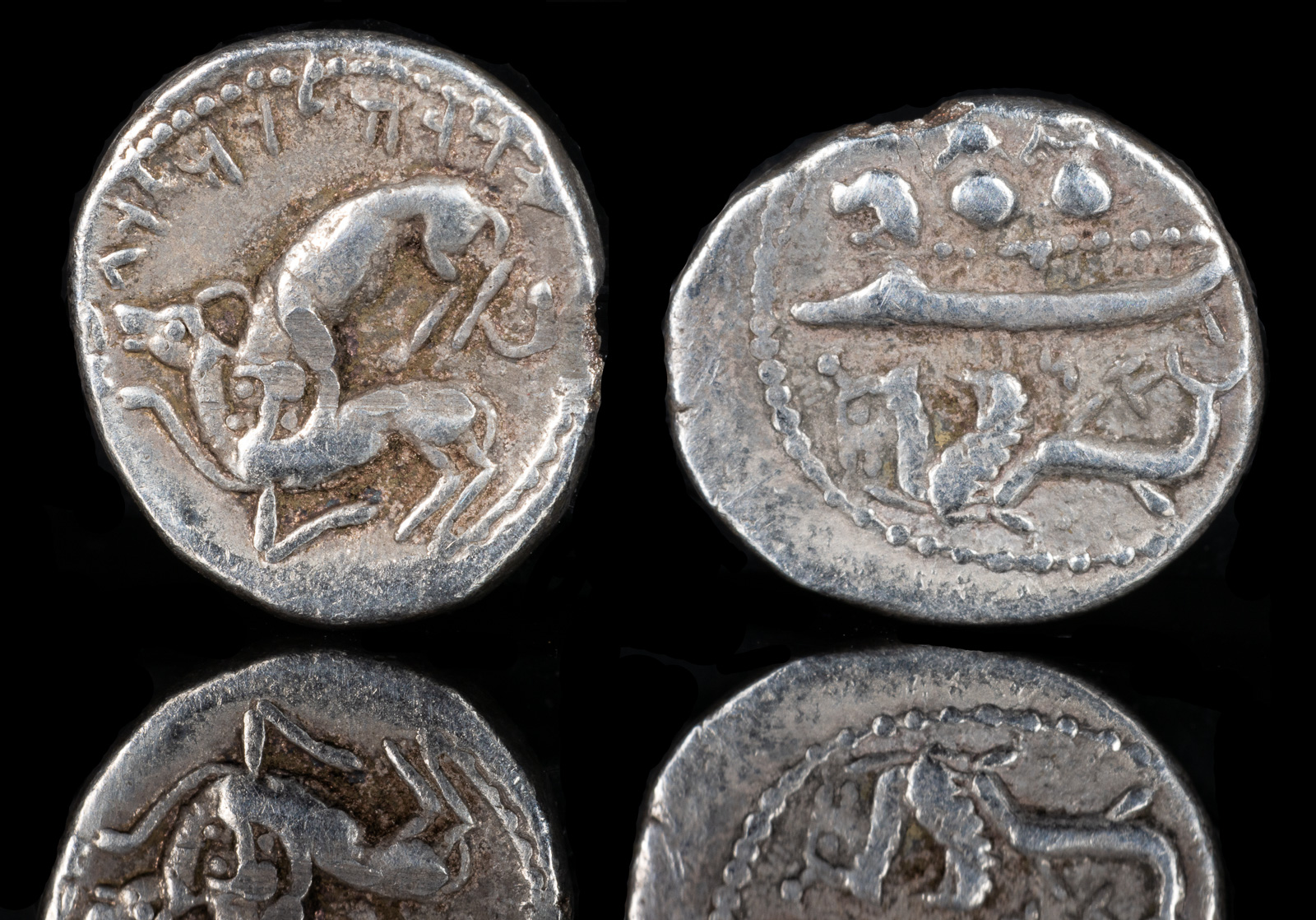
Phoenicia, Byblos ‘Urimilk III
AR 1/16 Stater 0.87g, 11mm, 9h
Circa 333 BCE
Galley to left, containing two hoplites with helmets and round shields; below, Phoenician letters and hippocamp to left / Lion attacking bull to left, Phoenician inscription above. E&E-B Group IV.3.2; HGC 10, 137
Ex Roma
If you’ve ever read a book, then Byblos has influenced you. The words “Bible” and “book” came from the city, which during ancient times was the major source of papyrus.
As with the other principal Phoenician cities in the Levant (Arados, Tyre, and Sidon), Byblos was an ancient city and archeology has suggested that it may be the most ancient of them, having been continuously inhabited for over 10,000 years. In fact, during a book I recently read about the area, Alexander the Great’s invasion was only broached in the last chapter.
In step with the other Phoenician cities, Byblos readily submitted to the major power in the area in exchange for freedom of trade. The city submitted to Alexander the Great without a fight and minted their own issue of his famous tetradrachms.
The hippocamp, pictured here on the reverse, was a well-known mythological creature during Phoenician times. Here it’s underneath a gallery, presumably with poor intentions in mind.
I’m not exactly sure of the lion and stag imagery, but it also occurs on several Persian issues (notably those of Mazaios) so I suspect it’s a nod to the Persians, who ruled the area at that time.
Pharaoh Pepi I of Egypt mentions Byblos in texts, reflecting ongoing trade relations.
Egyptian Pharaoh Senusret III continues relations with Byblos, with inscriptions confirming Egyptian influence in the city.
Byblos appears in the Amarna Letters, diplomatic correspondences from this period, reflecting its role in the regional politics of the Late Bronze Age.
Ahiram (Ahirom), a Phoenician king of Byblos, is buried in a sarcophagus with one of the earliest known inscriptions in the Phoenician alphabet.
The Assyrian king Tiglath-Pileser III conquers Manbog. Byblos becomes a tributary.
September 26
Aegina plays a significant role in the Greek naval victory against the Persian Empire in the Battle of Salamis. Byblos, Arados, Tyre, Halikarnassos under Artemisia, Kos, and Sidon support Darius. Chalkis and Kythnos support the Greek effort. Alexander I serves as a peace negotiator on behalf of the Persians.
Artaxerxes III Okhos sends his satraps Belesys and Mazaios to retake Sidon, Tyre, and Byblos. The Persians are defeated by the Phoenicians, supported by Nektanebo II and Mentor of Rhodes.
Sidon, Byblos, and Arados under Gerostratos submit to Alexander the Great as he travels through Phoenicia.
Roman emperor Vespasian honors Byblos for its loyalty during the Jewish Revolt, providing certain privileges to the city.